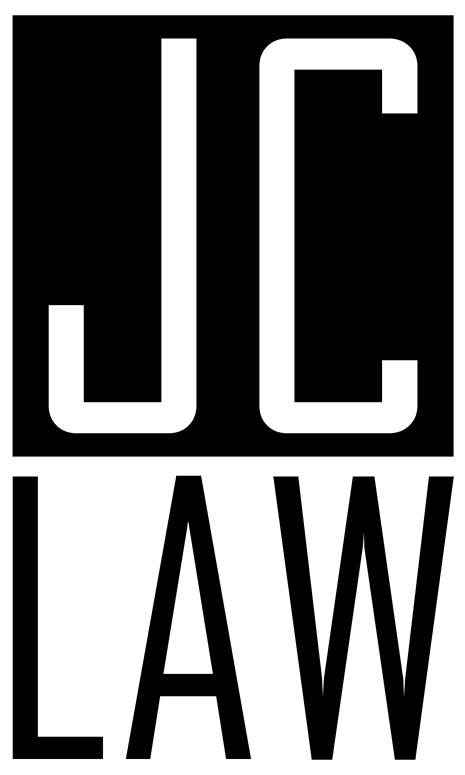JC LAW
A Law Firm That Puts You First!
Have You Been In An Auto Accident?
Trust Legal Expertise You Can Rely On!

If you've been injured in a car accident, let us help you get the justice and compensation you deserve.
With years of experience in personal injury law, our team has a deep understanding of the legal and financial challenges that often arise in the aftermath of a car accident. We're committed to helping our clients navigate these challenges and obtain the compensation they deserve.
- Learn from customer feedback
- Professional Team
- High Success Rate
- 24/7 customer support

About Us
Law You Can Understand
We know that legal action can sometimes be overwhelming. We are dedicated to providing you help in language that you can understand. If you don't feel like you understand your options, just ask, and we will work to find an explanation that works for you.
What We Offer Other Firms Don't
We will help you file your benefits!
Household services, Miles, Wages & Transportation
Trust a law firm that's looking to help you as their first priority!
Get Started Today
Don't wait! Contact us for a free phone consultation. Let us help you figure out your best next steps are. The sooner you have a plan of action, the better your chances of taking the correct steps to get the results you want.
Years Experience
Team Members
What you need to know
Suing someone after a car accident
The things you can sue someone for after a car accident in Michigan include pain and suffering compensation, excess wage loss benefits, excess medical benefits and vehicle damages up to $3,000. Additionally, you can file a lawsuit against your auto insurance company for No-Fault benefits that are unpaid or late.
Therefore, we can say that anyone injured in a vehicle crash in Michigan has 3 potential cases that he or she can file a lawsuit for: the first is against his or her own insurance company for overdue or unpaid PIP benefits; the second is against the at-fault driver for causing the injuries, harms and losses from the crash itself, and the third is a mini-tort claim for vehicle damage and vehicle repair costs of up to $3,000.
Yes, in Michigan you can sue the at-fault driver after a car accident to recover your pain and suffering compensation, excess wage loss benefits, excess medical benefits and for a mini tort recovery to pay for repairing damage to your vehicle.
If you were injured in a work-related car accident in Michigan, you can file a lawsuit for pain and suffering compensation against the at-fault driver (assuming he or she is not a co-worker or your employer).
The Worker’s Comp law’s “exclusive remedy” provision does not prohibit an injured worker from suing a third-party – such as an at-fault driver – for tort liability. (MCL 418.131(1); 418.827(1) and (5))
But, your employer or his or her Worker’s Compensation insurance company may be able to seek monetary reimbursement for what it has paid you in benefits by putting a lien on your recovery for pain and suffering compensation – under certain circumstances. (MCL 418.827(5))
The Michigan Supreme Court in Great American Insurance v. Queen has said that a reimbursement lien is authorized only if the Worker’s Comp benefits are more than a “substitute” for the benefits you would have received under Michigan’s auto No-Fault insurance. The Worker’s Comp benefits must “exceed no-fault benefits in amount or duration” and, if they do, then the lien is limited to reimbursement for the excess amount.
In terms of suing for wage loss benefits after a work-related car accident in Michigan, there has always been the potential for a reimbursement lien because Worker’s Comp wage loss continues “for the duration of the disability” (MCL 418.301(7) and (8)), whereas No-Fault wage loss only continues “during the first 3 years after the date of the accident.” A lien could be used to seek reimbursement for Worker’s Comp wage loss paid after the three-year No-Fault limit had been exhausted.
However, as a result of the new No-Fault law that was enacted in June 2019, there may now be the potential for reimbursement lien based on medical benefits. Prior to 2019, No-Fault was similar to Worker’s Comp because both required “unlimited” medical benefits to the extent they were reasonable and necessary. (MCL 500.3107(1)(a) and 418.315(1))
But now with the new No-Fault PIP medical benefits coverage levels, there is a new potential for Worker’s Comp medical benefits to exceed No-Fault medical in both amount and duration, thus creating the possibility for a reimbursement lien based on medical benefits. Under the new No-Fault PIP medical benefit coverage levels, drivers can choose to retain “unlimited” coverage or they can choose to cap their coverage at $50,000 (for drivers enrolled in Medicaid), $250,000, $500,000, or opt-out completely if they have Medicare. (MCL 500.3107c(1) and 500.3107d(1) and (7)(b) and (c))
In other words, suppose a person has No-Fault medical coverage with a $250,000 limit in his or her auto insurance policy and the person is injured in a work-related car accident. If the person successfully sues the at-fault driver after the car accident in Michigan, then his or her employer’s Worker’s Comp insurance company can file a lien against the pain and suffering recovery to seek reimbursement for Worker’s Comp medical benefits paid in excess of $250,000.
If you’re trying to recover money damages for your injuries, pain and suffering, excess wage loss and future medical bills, then you’ll sue the at-fault driver who caused the car accident in Michigan. If you’re trying to recover unpaid, overdue, or late No-Fault benefits, you’ll file a lawsuit against your insurance company.
If the at-fault driver who totaled your car was insured at the time of the crash, then you’re limited under Michigan’s mini tort law to sue for no more than $3,000 for your vehicle damage repair costs. However, if the at-fault driver was uninsured, you can file a lawsuit for the full value of your vehicle damage.
Michigan law imposes no monetary limit on how much you can sue an at-fault driver after a car accident for in terms of pain and suffering compensation and excess wage loss and medical benefits. However, your recovery may be limited by the at-fault driver’s liability coverage. The most you can sue for under the mini tort is $3,000.
Your recovery against an at-fault driver for pain and suffering and/or excess wage loss or medical benefits will likely be limited to the extent of his or her liability insurance coverage – unless the at-fault driver has significant personal assets that you can go after if the driver’s liability to you exceeds what his or her auto insurance is obligated to pay.
Under Michigan’s new auto law, drivers are now required to carry bodily injury liability insurance – which is also called third-party insurance – with limits of $250,000 and $500,000, although the law permits drivers to choose dramatically lower bodily injury insurance limits of $50,000 and $100,000 as well.
Given the increased liability exposure that all drivers in Michigan now face if they cause a serious injury after a vehicle crash, many drivers are also turning to umbrella coverage for added protection. The at-fault driver who injured you may have additional liability coverage through an umbrella policy. Insurance agents are also writing more policies with uninsured and underinsured motorist coverage to also protect drivers if the person who causes the crash is either uninsured or underinsured.
If you’re in a car accident in Michigan and your vehicle is damaged, you can sue the at-fault driver under the mini tort law for up to $3,000. However, if the damage was to your safely parked vehicle or other tangible property, you can file a PPI claim with the driver’s insurance company. Recovery is limited to $1 million.
In Michigan, you can sue the at-fault driver for negligence after a car accident to recover pain and suffering compensation, excess wage loss benefits, excess medical benefits and vehicle repairs under the mini tort.
For pain and suffering compensation, you will also need to show you suffered a “serious impairment of body function.”
You could sue the uninsured, at-fault driver, aft the car accident in Michigan but your attorney will have to determine if this person has personal assets or the ability to pay for the harms and losses they have caused. If you have “uninsured motorist coverage,” you can file a claim with your own auto insurer. Some policies will require you to also file a lawsuit against the uninsured driver who caused the crash as part of an uninsured motorist lawsuit.
For pain and suffering compensation, you will also need to show you suffered a “serious impairment of body function.”
If the at-fault driver has significant personal assets, then you may consider to suing and forcing him or her to pay out-of-pocket what you are owed. Alternatively, if you have “underinsured motorist coverage,” then you can file a claim with your insurer. You may need to sue if your claim is denied.
For pain and suffering compensation, you will also need to show you suffered a “serious impairment of body function.”
TESTIMONIALS
What our clients can show you
Don't just take our word for it – here's what some of our clients have won with our help.



























Our Partners









